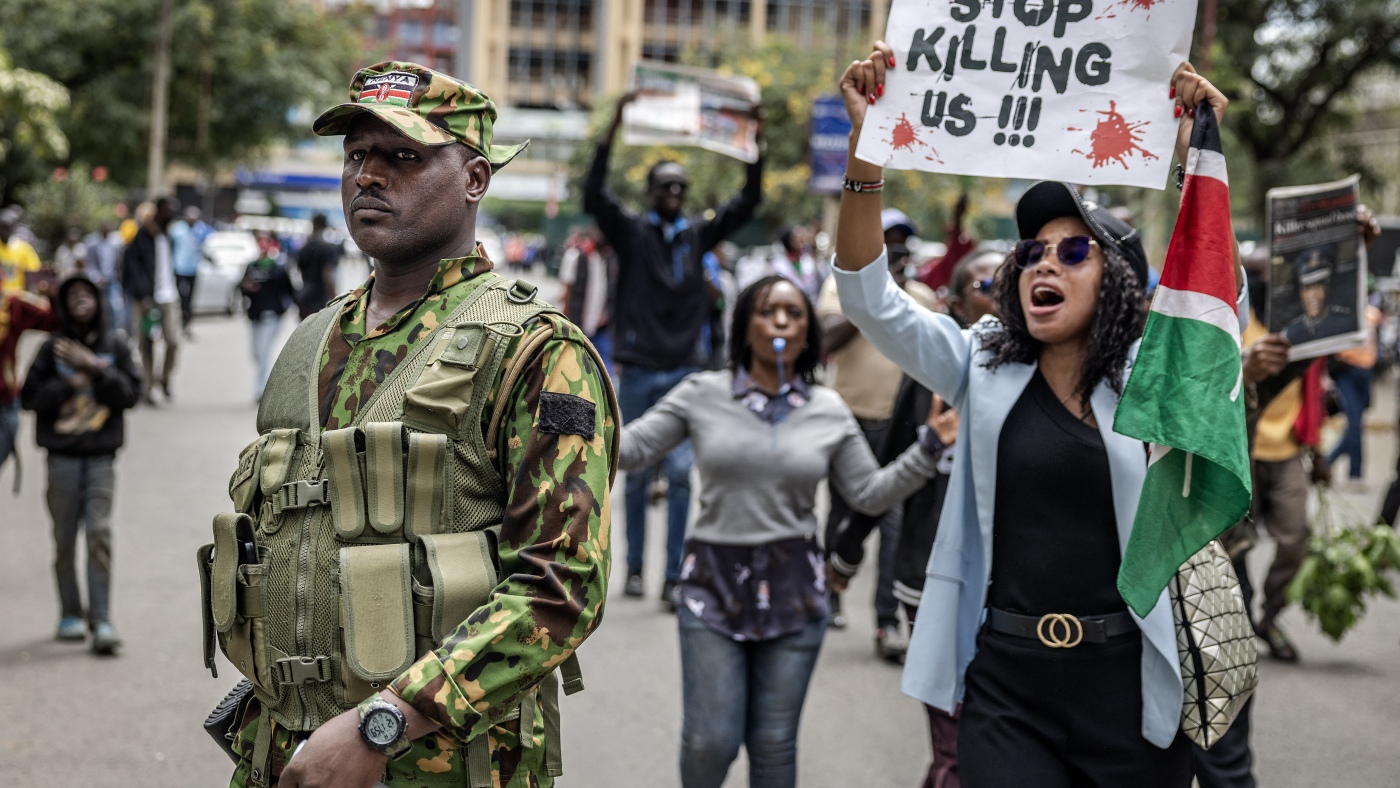The Death of Albert Ojwang: Unraveling a Crisis of Police Brutality and Public Outcry in Kenya
==============================================================================================
A Nation’s Pain and a Catalyst for Change
—————————————-
Albert Ojwang’s tragic death while in police custody has become more than just a sorrowful incident; it captures the deep fissures within Kenya’s law enforcement and society. His case has emerged as a potent symbol of systemic police abuses and the public’s simmering anger against unaccountable authorities. As a 31-year-old blogger known for activism and outspoken criticism, Ojwang’s fate underscores the clash between freedom of expression and oppressive state mechanisms—a narrative that resonates beyond Kenya’s borders.
Understanding the Incident: A Closer Look
—————————————-
The sequence leading to Ojwang’s death is fraught with troubling details that reveal the dynamics of power and silence in the country. Arrested on June 6 in Homa Bay, then transported over 400 kilometers to Nairobi, Ojwang was accused of disseminating “false information” concerning senior police officials. While police initially declared his death as self-inflicted, conflicting autopsy findings suggested otherwise, igniting suspicion of foul play.
This stark divergence between official statements and medical evidence presents a troubling pattern of institutional obfuscation. The inconsistency has been further compounded by mixed signals at the highest political levels, including President William Ruto’s comments, deepening nationwide skepticism about transparency and justice.
The Protests: Voices Rising Against Injustice
———————————————
What followed Ojwang’s death was a swift and powerful series of protests, especially in Nairobi’s heart—near the very police station where he died. These gatherings, defined by collective grief and righteous indignation, illuminated a recurring theme: systemic brutality and a culture of impunity that shields perpetrators within the police.
Wearing black and carrying placards, protestors channeled decades of frustration, underscored by recent reports of more than 20 deaths in custody within a few months—numbers that paint a grim picture of recurring abuse. The state’s response, deploying tear gas and aggressive crowd controls, only escalated tensions, revealing deep divisions between citizens yearning for justice and security forces upholding entrenched practices.
Political Repercussions and Institutional Accountability
——————————————————–
Ojwang’s death did not just stir public ire; it forced Kenya’s political apparatus to confront uncomfortable realities. Parliamentary hearings scrutinized police conduct, compelling officials to answer for the failures that led to this tragedy and others like it. Police chief Douglas Kanja’s public apology for misleading the public represents a rare admission of fault, a glimmer of institutional self-awareness amid widespread mistrust.
Though the arrest and charging of one officer for murder indicates a move toward accountability, the ongoing elusiveness of two others underscores persistent challenges. The slow pace of reform, coupled with entrenched resistance within the police force, casts doubt on whether individual prosecutions can translate into meaningful systemic change.
The Greater Context: Youth, Technology, and Regional Dynamics
————————————————————-
Ojwang’s death also spotlights a broader struggle unfolding across East Africa, where youth-led activism—often orchestrated through digital platforms—clashes with authoritarian crackdowns. This generation, adept at harnessing technology for political expression, increasingly finds itself targeted by state mechanisms intent on preserving established power hierarchies.
The repression faced by bloggers, activists, and dissenters reveals a worrying trend of shrinking civic space and curtailment of freedoms. Ojwang’s case, emblematic of this broader assault, raises pressing questions about the future of democracy and human rights not only in Kenya but throughout the region.
An Imperative for Lasting Reform
——————————–
Albert Ojwang’s death resonates profoundly because it encapsulates enduring issues: the lethal consequences of unchecked police power, the perils faced by those who challenge authority, and the urgent need for transparency and reform. The public’s formidable response is more than mourning; it is a clarion call against a system that allows impunity to flourish.
To move beyond this crisis, Kenyan authorities face an imperative task: dismantling ingrained cultures of abuse and secrecy within law enforcement and rebuilding trust through genuine accountability. This involves not only addressing individual culpability but also implementing robust oversight, safeguarding freedom of expression, and ensuring human rights are not sacrificed in the name of security.
If Kenya can rise to this challenge, it will not only honor Albert Ojwang’s legacy but also pave the way for a future where justice prevails and the rights of all citizens are respected without compromise.

